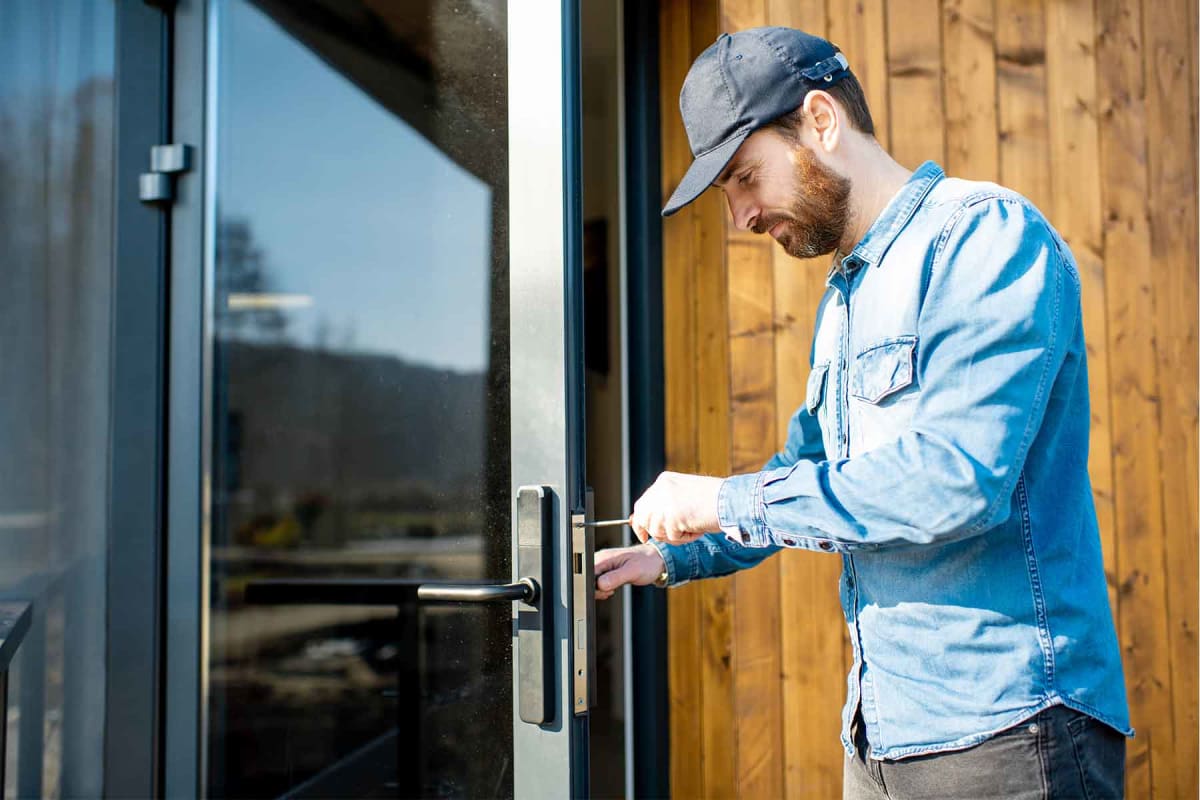
How to Become a Locksmith: A Complete Guide
How to Become a Locksmith: A Complete Guide
How do you become a locksmith?
Wondering how to become a locksmith? Locksmithing offers a hands-on, problem-solving career that helps people secure their homes, businesses, and vehicles. To be a locksmith, you need technical training, practical experience, and, in many states, a license. Follow these steps to launch your locksmith career and build specialized skills.
1. Locksmith training
Enroll in a locksmith training program accredited by a reputable organization, such as the Associated Locksmiths of America (ALOA). Training options include short courses, apprenticeships, and diploma programs, covering topics like lock installation, key duplication, and security systems.
Many locksmith school programs offer beginner to advanced levels and take from a few days to several months to complete.
2. Experience
Work as an apprentice or trainee with an experienced locksmith to apply your skills in real-world situations. Apprenticeships can last several months to a few years and are essential for building competence and confidence.
3. Locksmith license
Check your state’s licensing laws for locksmiths, as requirements vary. If your state requires a license, you'll have to pass a criminal background check, complete approved training, and then pass a licensing exam. In some states, you'll also need to register as an apprentice before working in the field.
For example, you need a license to be a locksmith in Texas and California. Florida does not have a state-level requirement, but some local-level jurisdictions Like Miami-Dade County have their own requirements.
4. Voluntary locksmith certification
Earn certifications from organizations like ALOA to demonstrate expertise. Start with basic certs like:
ALOA Fundamental Locksmith (AFL)
Registered Locksmith (RL) designation
Then you can get more advanced certifications such as:
Certified Registered Locksmith (CRL)
Certified Professional Locksmith (CPL)
Certified Master Locksmith (CML)
5. Professional development
Stay current by attending workshops, joining professional associations, and pursuing advanced certifications. ALOA and other similar organizations offer ongoing education and networking opportunities.
6. Specialization
After gaining experience, consider specializing in areas such as:
Residential locksmithing (home security, lockouts, key duplication)
Commercial locksmithing (master key systems, access control)
Automotive locksmithing (car lockouts, key programming)
Safe and vault services (installation, repair, opening)
Forensic locksmithing (security, tampering, forced entry)
Tips for locksmiths
If you've gotten through training and have a locksmith license or certification, follow these suggestions to launch your career. If you already have professional experience under your belt and want to start your own business, these tips can help with that, too!
Build a strong online presence with a professional website, local SEO, and active social media accounts to attract more clients and boost credibility.
Join HomeGuide to access more potential clients and build a bigger network.
Offer 24/7 emergency services and highlight them in your marketing to set your business apart and meet urgent customer needs.
Diversify your service offerings by adding automotive, electronic security, or smart lock solutions.
Forge partnerships with local businesses, real estate agencies, and security system providers for referrals and joint marketing opportunities.
Sell locksmith-related products, such as high-security locks and key organizers, to create additional revenue streams.
Focus on exceptional customer service: encourage reviews, respond to feedback, and provide follow-up services.
Attend local networking events and offer security workshops to position yourself as a trusted expert in your community.
Invest in the latest locksmith technology and employee training to stay competitive and deliver high-quality, modern solutions.

FAQs about how to be a locksmith
How much do locksmiths make?
Locksmiths in the United States earn an average annual salary of $49,000 to $54,000, depending on the location and experience level. Most locksmiths make hourly wages ranging from $21 to $26 per hour, with entry-level positions starting around $41,600 per year and experienced professionals earning up to $76,000 or more.
Salaries vary significantly by state. For example, locksmiths in Wisconsin and Alaska can average over $60,000, while those in states with a lower cost of living like Mississippi or Oklahoma average closer to $47,000. Factors such as experience, specialization, and location strongly influence earning potential in this field.
How long does it take to become a locksmith?
Becoming a locksmith takes 6 months to 2 years, depending on the training path you choose. Many start with a basic locksmith course lasting from a few days to several weeks, such as the 6-day course offered by the Associated Locksmiths of America (ALOA).
More comprehensive programs, like the 9-month full-time Locksmithing & Security Technology diploma at North Bennet Street School, provide in-depth hands-on training.
What is the best locksmith training course?
The best locksmith training course depends on your goals, preferred learning style, and whether you want in-person or online instruction. Top options in the U.S. include:
In-person options:
ALOA Training Center (Dallas, TX): Widely respected in the industry, ALOA offers a comprehensive 6-day hands-on Basic Locksmithing Course, plus advanced certifications like Certified Registered Locksmith (CRL), Certified Professional Locksmith (CPL), and Certified Master Locksmith (CML). ALOA certifications are recognized nationwide and often align with state licensing requirements.
American Center for Locksmith Training (Ogden, UT): This course is known for its intensive, hands-on classroom training, especially in automotive locksmithing. Graduates report being well-prepared for real-world work, as the program emphasizes practical skills over product sales.
National Locksmith Institute (several locations): This school offers a 40-hour Certified Facility Locksmith program, focusing on comprehensive facility locksmithing skills.
Online options:
Stratford Career Institute provides flexible, accredited online courses covering residential, commercial, and automotive locksmithing.
The Penn Foster Career School is known for its self-paced, interactive curriculum.
Foley-Belsaw Locksmithing offers a popular online course with industry-recognized diplomas and practical training materials, including a key machine.